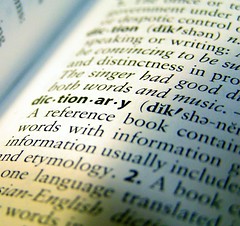It’s time again for our weekly Language Blog Roundup, in which we bring you the highlights from our favorite blogs and the latest in word news.
First up, the Bee! Congratulations to Sukanya Roy! The eighth-grader from South Abington Township, PA won with cymotrichous, “characterized by having wavy hair.” Congrats also to all the spellers for their stupendous performances! Check back here on Monday for full recap, as well as a couple of fun announcements.
Last week the word world lost an important figure with the passing of Gil Scot-Heron. A “notable voice of black protest culture . . . and an important early influence on hip-hop,” he was a spoken word artist and musican who rose to prominence in the 1970s. You can learn more about Scot-Heron’s life and work at his official website.
The New York Times discussed another man of letters in its review of Joshua Kendall’s The Forgotten Founding Father: Noah Webster’s Obsession and the Creation of an American Culture. While most famous for penning that famous dictionary, he was also “notably dislikable,” as well as “[a]rrogant, condescending, humorless and socially tone-deaf.” We still like him.
Meanwhile, The Wall Street Journal spoke with a modern lexicographer challenged with keeping up with today’s rapidly changing slang while Fully (sic) railed against an old Australian law that hasn’t caught up with modern times, namely the Summary Offences Act (1966), which rules that one may be fined for “antisocial behavior,” including “sing[ing] an obscene song or ballad.” Perhaps to avoid the fine, one may want to use one of Arnold Zwicky’s many suggestions for replacements of, shall we say, the king of four-letter words (we like frak).
The Columbia Journalism Review listed some other words and phrases one may want to avoid, as well as a recent word best described as “wish it wasn’t the word of the week” – Weiner (there, we said it). Johnson considered legalese and misunderstandings around euphemisms, while the Dialect Blog blogged about l vocalization; the difference between a pub and a bar (pub = cozy, bar = sleazy?); the supposed Fargo accent; and the relationship – or lack thereof – between climate and accent.
While we’re on accents, NPR had a story on the curious case of the foreign accent, incidents of individuals suddenly acquiring an accent, probably as the result of head trauma, while there were reports that bilingualism is no big deal for the brain, and in may in fact be an advantage. While that may be true for most people, this translator of cruise ship memos, pointed out by Language Log, seemed to have trouble (“Timid and rapidly grown prostitutes, anyone?”).
K International wrote about the Amondawa, a small tribe in Brazil’s Amazon Rainforest, unique in that it has no word for time, and instead “see[s] events in the context of life stages and transitions.” They don’t celebrate birthdays or keep track of how old they are, but “change their names to reflect what stage of life they are in and their current role in their community.” (Sounds good. I’ll be “Phyllis” instead of 40.)
The Word Spy spied TINO, a political candidate who is “Tea in Name Only” and does not actually ascribe to the party’s views; a haycation, or vacation on a farm; the last name effect, or how people with surnames closer to the end of alphabet are supposedly quicker to make purchase decisions; and our favorite, chartjunk.
Motivated Grammar pronounced the “one another” versus “each other” distinction “a bunch of made-up hooey,” and proposed that grammar mistakes may often be due to speedy delivery, rather than ignorance, perhaps one of the many arguments for why the world needs editors.
On a final bittersweet note, Ben Schott announced this week that he is leaving The New York Times, and that “after two and a half years, thousands of posts and tens of thousands of comments, Schott’s Vocab is closing its doors.” However, he’ll continue to supply Schott Op-Eds for The Times, and you can always follow him on Twitter.
That’s it for this week. Remember, if you have a tip or would like your language blog to be included in our weekly roundup, let us know in the comments, via email (feedback AT wordnik DOT com), or on Twitter.



